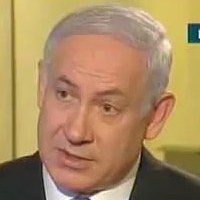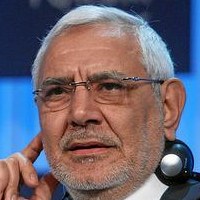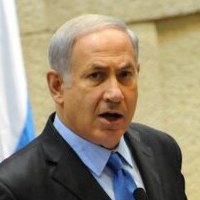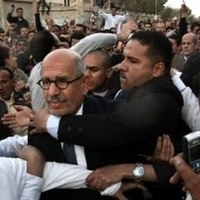![]()
Fri, Dec 30, 2011 | By Barry Rubin

TIME Magazine’s Person of the Year 2011 Cover by street-art artist Shepard Fairey based on the protester in the Arab Spring.
After the “Arab Spring”: Will Freedom Take Hold in the Arab World?
Here’s an important question that I haven’t seen anyone else ask: At the end of 2011 is anyone in the Arabic-speaking world better off as a result of the upheavals of the “Arab Spring.” While one cannot give a completely unqualified “no” to that question, the answer has to be a pretty strong “no” nonetheless.
In Bahrain, Syria, and Yemen, the regimes have so far put down the upheavals with no real reform. In Bahrain, a Sunni monarchy rules over a largely Shia population. The Shia opposition includes both hardline revolutionary Islamists and those who merely want a more equitable division of power. But the regime has held firm and not given an inch.
In Yemen, a complex mixture of factions has fought back and forth in a bewildering and changing series of alliances. But so far the old dictator is still in place. The same can be said for Syria, where an estimated 4000 people have been killed and both the economy and society devastated. While the outcome isn’t clear in Syria, change is very doubtful in Bahrain and Yemen.
Smaller movements have been easily put down in Saudi Arabia and Jordan. In Morocco, free elections have been held and an Islamist party has won but this all follows the traditional pattern of the monarchy allowing an opposition to take power but then maintaining the status quo.
Iran and the Gaza Strip remain Islamist dictatorships, while previous free elections in Lebanon brought to power a government dominated by Islamist Hizballah and an assortment of Syrian clients. The Islamists also won reelection in Turkey. The Palestinian Authority keeps postponing elections — its term ended in 2010 — because it isn’t confident that Fatah can defeat Hamas. At any rate, the Fatah rulers of the West Bank and the Hamas rulers of the Gaza Strip, despite a nominal alliance, don’t trust one another.
So nowhere in the region has there been real change, much less change for the better, except possibly in the three countries where the regimes fell, Egypt, Tunisia, and Libya.
The situation in Libya is too early to call. The Qadhafi dictatorship was an extremely repressive regime led by an arguably mad dictator. If anywhere people are better off than this is the place. But there is still a great deal of anarchy. When coupled with the power possessed by undisciplined men with guns — more than a few of whom are radical Islamists and even al-Qaida supporters — things don’t look so good. Add to that some tremendous tribal and regional conflicts and the prospects for civil strife in future is rather high.
Tunisia, the Arabic-speaking world’s most secular and Western-oriented society seems to have more of a chance at creating a stable democracy. True, the Islamists got 40 percent and emerged as the single largest party, but four large and many smaller centrist or social democratic parties obtained most of the remaining 60 percent. There will be a coalition government and a new constitution that will have to be based on compromise.
With a large urban middle class and a relatively depoliticized army, Tunisia might emerge with some kind of political balances. There too, however, violent Islamist tendencies could create significant problems but perhaps 40 percent represents the peak of what the Islamists can obtain, and only that by at least pretending moderation.
Egypt, by far the most populous Arabic-speaking state, remains the big question of course. As of the end of 2011, the military is still in control and while it has generally striven to get along with the powerful Muslim Brotherhood, it has not hesitated to repress demonstrations by more moderate forces and Christians while not being vigorous at all in protecting Christians from Salafists.
Moreover, Egypt has been beset by a tidal wave of criminal violence which has adversely affected many citizens directly. And the economic situation has badly deteriorated. Prices for basic consumer goods have climbed steeply despite the fact that previous increases were an important factor in prompting the original protests. Foreign currency reserves have been cut in half, the deficit is growing, tourism has declined, and there is no relief in sight.
In material terms, life for Egyptians is worse than it was when the year started and the Mubarak regime was still in power. Certainly, one could say there is more freedom. But what precisely does this mean? The Mubarak regime was not equivalent to the Syrian or Iraqi Saddam Hussein dictatorship after all. So the mass media have more diversity and the Brotherhood and other political movements, yet most Egyptians could have difficulty in finding some difference in their lives.
During the first two rounds of the parliamentary election, the two Islamist parties are claiming up to 75 percent and certainly have at least 60 percent of the vote. They will certainly have a majority in parliament and will play a leading role in writing the new constitution. The Salafists are demanding rapid progress toward an Islamist state; the Brotherhood is more patient and strategically flexible.
It is not entirely clear what 2012 will bring. The parliamentary voting is supposed to be finished in March 2012 and at some point after that the parliament will convene. A large committee will be selected to write a Constitution but there is no time limit on that being produced. Equally, it is not certain when presidential elections will be held, any time between mid-2012 and mid-2013. Presumably, the military junta will yield executive authority to a new president.
None of these things will necessarily improve the domestic situation in Egypt. Prospects for foreign economic aid are limited and no one has a program for turning around Egypt’s economy, increasingly living standards, holding down prices, or providing jobs. These issues will simply not go away.
Two other factors of importance will be the behavior of the Salafists and the relationship with Israel. The Salafists are highly decentralized and it is most likely that some will embark on violent campaigns against Christians, secularists, advocates of women’s rights, liberals, and perhaps against the government itself.
Nor can peace with Israel be taken for granted. True, the armed forces can be expected to want to avoid war in order to avoid defeat and to keep getting U.S. aid funds. Yet ideological enthusiasm and mass demands could push the country over the brink, and Arabic-speaking counties have often resorted to scapegoating incitement and foreign adventures in response to unsolvable domestic problems.
So while Western observers would like to describe 2011 and the “Arab Spring” enthusiastically as a time of great hope, progress, and growing freedom for Arabs, an examination of the evidence in no way bears out this positive assessment. And, with a few exceptions, the prospects for 2012 are no better.
Barry Rubin is director of the Global Research in International Affairs (GLORIA) Center and editor of the Middle East Review of International Affairs (MERIA) Journal. He is a featured columnist at PJM http://pajamasmedia.com/barryrubin/. His book, Israel: An Introduction, will be published by Yale University Press in January. Latest books include The Israel-Arab Reader (seventh edition), The Long War for Freedom: The Arab Struggle for Democracy in the Middle East (Wiley), and The Truth About Syria (Palgrave-Macmillan). The website of the GLORIA Center is at http://www.gloria-center.org and of his blog, Rubin Reports, http://www.rubinreports.blogspot.com.



 RSS
RSS










Latest Comments
Hello Mike, Thank you for your positive feedback to the article. I felt there wasn’t too much critical analysis of ...
Thanks for this considered and well constructed article. A follow up article on the manner in which the editorial contro...
THE CLUELESSNESS OF CLAIMING THAT OBAMA'S MIDDLE EAST POLICIES WERE A FAILURE CANNOT BE FURTHER FROM THE TRUTH, WHAT THE...
As long as Obama is the president of the usa do not trust the us government......
Thank you for an good read....